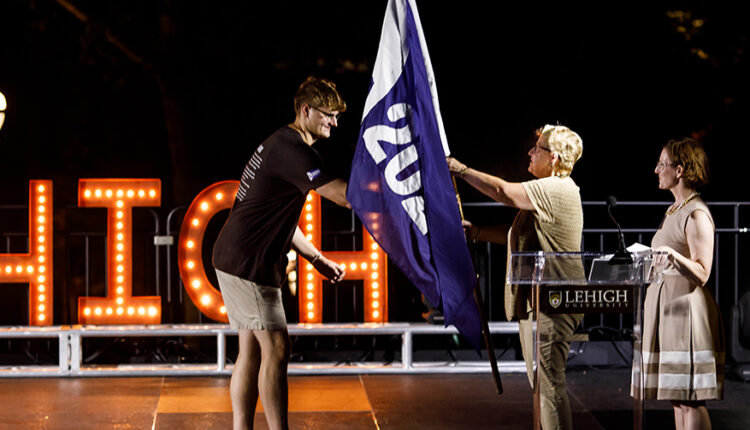Experiences of the first co-ed class at Lehigh
When Amy Lemles, ’75, dream of college in Boston was thrown away by the Vietnam War protests, she realized she needed a quieter school closer to her New York home.
Lehigh seemed a perfect match for Lemle, who expected her time in Pennsylvania to be quaint and enjoyable, aside from the fact that she would be part of the very first mixed class admitted to the university.
After admitting the first group of female students to the institution in 1971, Lehigh was able to reinvent his student body. Corresponding University data, the campus now consists of 54 percent male students and 46 percent female students.
Fifty years later, Lemle remembers her experience in Lehigh as the happiest time of her life.
As an alumni of the Mustard and Cheese Drama Society and a reporter for The browns and whites, The life of a psychology student on campus today is no longer far removed from that of a student on campus.
“It was crazy,” said Lemle. “We were all so excited and nervous at the same time. We were only a few – about 150 women with 3,200 men. ”
Marilyn ‘Mardi’ Blacher-Reich, ’75, studied psychology and became a member of the Gryphon Society and volunteer for various local organizations.
Lemle and Blacher-Reich said that during their time at Lehigh they felt that their presence was often appreciated, although not all of their classmates and teachers showed this affection.
“I’ve never felt disadvantaged in my (art and science) classes, and I definitely felt it was an equal,” Lemle said. “But I think it wasn’t the same with some of the girls in the other programs.”
Blacher-Reich said she took an English course focused on particularly sexualized poetry that was taught by a professor to a class of about 25 men and five women. She said she felt it was “chauvinistic” and “embarrassing”.
“There weren’t any problems with the ’74 class,” said Blacker-Reich. “But the older classes came to Lehigh and opted for an all-male school, so they felt uncomfortable. You could tell it was them. They stayed away from us. ”
Mardi Blacher-Reich said her younger sister, Natalie Blacher-Reich, ’78, took a course to learn how to use tools for renovating a house and showed how the university’s degree programs changed in just a few years have developed.
In January 1991, 20 years after the university began accepting women, the women’s center opened its doors.
Founder Kathy Calabrese said her goal is to help men and women talk and listen to one another respectfully.
Calabrese said the center is a necessity for recruiting and retaining minority students, and it gives these groups a safe space to share ideas, network and brainstorm.
Rita Jones, current director of the center, which has been renamed Center for Gender Equity, said she witnessed a transformation on campus.
“It has moved from ‘There’s just this problem, I don’t know what to do’ to ‘This is a problem’ and then identified why and how and what role they would like to play along with asking for support different areas, ”said Jones.
Maddie Schott, ’24, said she felt it was important that women at Lehigh prove they were academically equal to men, even though stereotypes still plague our community.
She believes women shouldn’t suffer setback at the college level, and pursuing leadership positions and internships has helped her move forward.
Schott said one of the areas where she finds a gap between men and women on campus is security concerns.
“My friends and I always have a buddy system and never go out alone at night,” says Schott. “I noticed when I spoke to my friends that they had never thought about it to that extent.”
She also feels unsafe at times on campus, says Blacher-Reich. She said most dorms were unlocked late into the night with little to no external security measures, and groups of male students were free to enter the Palmer dorms, where all female students lived, at their discretion.
Looking at her classmates after decades of separation, Blacher-Reich said she was proud to see how successful they have become in their careers. She said the immersive experiences she had at Lehigh prepared her and her colleagues for their future in the workforce.
“We haven’t thought about how far we can get in life,” said Blacher-Reich. “I don’t think we were there. But because of the glass ceiling we didn’t have the high expectations that they have now. “



Comments are closed.